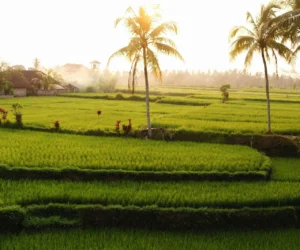
With new financial backing from both federal sources and industry stakeholders, the Diverse Field Crops Cluster (DFCC) has intensified its efforts towards enhancing environmental sustainability within Canada’s agricultural domain. This initiative primarily revolves around pioneering research on five key crops: camelina, flax, carinata, mustard, and sunflower.
The federal government has pledged a substantial investment of up to $8.12 million through Agriculture and Agri-Food Canada’s AgriScience Program – Clusters Component, an integral facet of the Sustainable Canadian Agricultural Partnership. This commitment is further bolstered by industry contributions exceeding $6 million, resulting in a comprehensive budget exceeding $15 million allocated over a five-year span.
DFCC’s scope encompasses a variety of projects aimed at amplifying yield and fortifying disease resistance in flax and mustard. Additionally, endeavors are underway to establish camelina as a promising oilseed crop adaptable to suboptimal land conditions. Furthermore, the initiative includes initiatives to evaluate greenhouse gas emissions across diverse crops, with an emphasis on crops resilient to water and heat stress, thereby potentially mitigating greenhouse gas levels and augmenting carbon sequestration. The multifaceted benefits of diverse crops extend to the creation of value-added products, thereby fostering economic expansion and progress.
The significance of this research endeavor is underscored by the words of the Honourable Lawrence MacAulay, Minister of Agriculture and Agri-Food, who emphasizes the imperative of enhancing the resilience and profitability of diverse field crops amidst the challenges posed by climate change.
Karen Churchill, president and CEO of Ag-West Bio, expresses gratitude for the ongoing support towards the DFCC, elucidating its pivotal role in offering farmers viable alternatives to integrate into their crop rotations. This strategic diversification not only augments profitability but also fortifies the agricultural ecosystem against the impacts of climate change. Through collaborative efforts, DFCC endeavors to expedite the advancement of these crops, facilitating collective progress within the agricultural sector.
Carol Ann Patterson, the project manager of DFCC, underscores the transformative potential of collaboration, emphasizing that the benefits extend beyond financial resources. The knowledge accrued through research and disseminated among DFCC members and farmers accelerates the progress of these crops, particularly those cultivated on smaller acreages.
The DFCC consortium comprises Mustard 21 Canada Inc, Smart Earth Camelina Corporation, Saskatchewan Flax Development Commission, Western Grains Research Foundation, Manitoba Crop Alliance, Nuseed Canada, and Saskatchewan Wheat Development Commission, collectively representing the diverse array of crops under its ambit.




